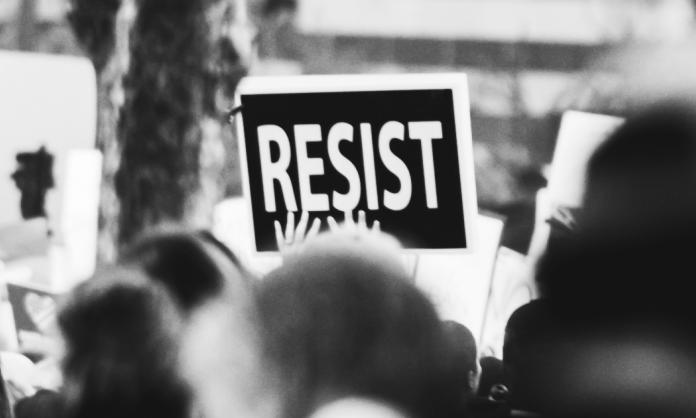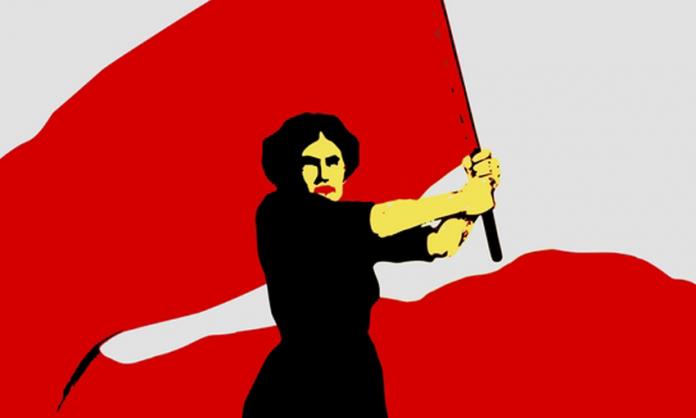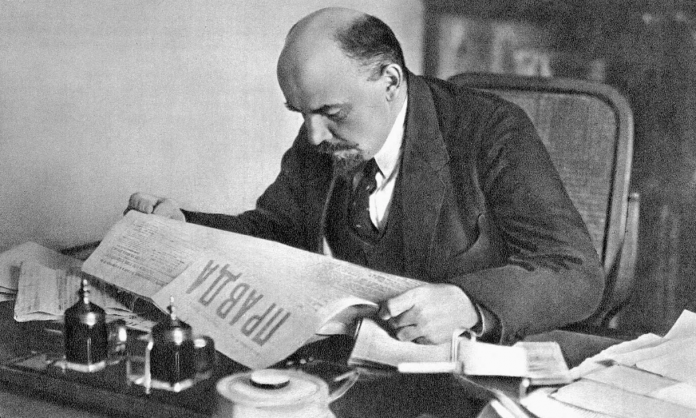In The Communist Manifesto, Karl Marx and Frederick Engels famously asserted, “The ruling ideas of each age have ever been the ideas of its ruling class”. By this, they meant not only that the rich and powerful largely own and control the means through which ideas are produced and disseminated, but also that the dominant discourse reflects and reinforces the interests of this minority. Commonly held ideas are inseparable from, and a product of, the dynamics of class domination.
Yet, in the same Manifesto, Marx and Engels also expound a vision of proletarian self-emancipation, in which the working class must unite and act to overthrow their rulers and become the dominant class. Unlike their political contemporaries, most of whom saw ordinary people primarily as “the most suffering class”, Marx and Engels identified the working class as the agents of capitalism’s destruction. No other social layer, they argued, has the power or interest to overthrow the capitalist system.
But if the ideas of the ruling class saturate society and influence the consciousness of ordinary people, then how can the working class resist those ideas such that they become capable of challenging the capitalist class’s rule? How do we square this circle?
For Marxists, the answer to this question lies in the propensity of working-class people to organise around their shared interests and at times actively fight for them. Marx and Engels rejected the idea we need an “enlightened” minority to lead the duped masses to their own emancipation. Nor did they think it was necessary for ordinary people to abandon every last iota of ruling-class ideology before they could change the world. Rather, they argued that the active process of collective struggle had the potential to transform consciousness at the same time as it reshaped society.
To understand this profoundly revolutionary theoretical and political outlook, we have to first understand how society produces ideas. You do not have to be a Marxist to see that ideas considered common sense today—such as that success is determined by hard work, private and public life are separate, competition and greed are inalienable aspects of the human condition—are specific to modern capitalism.
Imagine a peasant in feudal Europe thinking that, if they toil the land well, if they prove themselves in the eyes of their lord, they will jump up the social hierarchy and out of their lowly class position. Imagine an Aboriginal person in a pre-invasion society thinking that opportunities for profit were being squandered by communal custodianship of land. You can’t. The reason is that ideas do not exist independently of society. Rather, they come to prominence in relation to the changing ways in which humans collectively labour to meet our needs.
Marx succinctly spelled out this materialist approach to ideas and consciousness in A Contribution to the Critique of Political Economy, in which he asserted: “It is not the consciousness of men that determines their existence, but their social existence that determines their consciousness”. There are no ideas, for Marxists, prior to or outside of society and its specific organisation of production.
What does this mean when it comes to our social existence under capitalism? Capitalism is a system in which the vast majority of people across the world are coerced into a daily grind of profit-making for bosses, who expropriate the value produced by workers to out-compete their business rivals nationally and jockey for greater clout internationally.
The state facilitates this system in the interests of the capitalists, acting as “a committee for managing the common affairs of the whole bourgeoisie” as Marx and Engels noted in the Manifesto. Several forms of structural oppression—such as sexism, racism, homophobia and transphobia—strengthen the rule of this minority class.
Most of the time, most people accept some or most of the ideas normalising capitalism: from the notion that greed is natural to the idea that there are talented individuals who legitimately rule over others. Some argue this is a sign of the mainstream media’s success in brainwashing people. Others argue it reflects a lack of education.
Both arguments are misguided. Even if the mainstream media are, in one form or another, invariably pro-capitalist and a significant influence on our political consciousness, they alone do not and cannot make ordinary people submit to capitalism. If that were the case, capitalism could be undone simply by creating more left-wing media outlets. And the idea that more progressive instruction in schools or training in workplaces could shake us out of ruling-class ideology ignores the fact that the purpose of these institutions is to inculcate pro-capitalist ideas, not to challenge them.
The ideas of capitalism instead hold sway because they tend to fit with our experience of society. Take, for instance, the question of authority. In a system that does not appear as one made and remade by the collective labour of workers, but instead as an alien force beyond our control or knowledge, it is hardly surprising that ordinary people can accept the rule of bosses and politicians. Even when their ineptitude is blatantly exposed—as has occurred on countless occasions throughout the pandemic—the underlying idea persists that our rulers can and should do better.
Alternatively, consider inequality. Instead of wealth progressively “trickling down” to the working class and oppressed, it is only becoming more concentrated in the capitalist class. Such grotesque disparity translates into profoundly different conditions of life, including in relation to employment and education opportunities, access to housing, experience of police brutality and imprisonment, health and life expectancy. Class position shapes individuals, and in so doing creates the appearance that some people are just smarter, healthier and more capable than others. It is no wonder, then, that many people come to accept this inequality as “natural”—capitalism creates the inequalities that many people assume it simply reflects.
It is the structure of capitalism that sets the parameters for the ideas prominent in the consciousnesses of ordinary people, not vice versa. This perspective serves as a powerful rejoinder to the widespread view that working-class people are the source of most noxious ideas—that the election of a misogynistic and racist bigot like former US President Donald Trump directly reflects the prejudice of the uneducated, blue-collar American masses, for instance. Or that the system of refugee torture in Australia flows from the desires of racist “rednecks”. Politicians simply reflect bigotry according to this view; they don’t actively stoke it.
It is not only among hardened conservatives that this elitist narrative finds its staunchest spokespeople, but also among liberal “progressives”. Just consider the analysis of liberal politics Professor Robert Manne who, writing for The Monthly in the immediate aftermath of the 2010 federal election, set out to understand “why Australians are overwhelmingly hostile to asylum seekers who reach our shores by boat”. His key question, in other words, is not why the Australian government actively promotes racism, or why national borders are shut off to desperate people seeking safety, but why ordinary people are the driving force of backward ideas.
Unsurprisingly, then, Manne reaches the conclusion that deep-seated xenophobia and “downward envy” within the working-class motivate mandatory detention and offshore processing. He even goes one step further. Paraphrasing a famous political joke by German writer and poet Bertolt Brecht made about authoritarian rule in East Germany, Manne quips that “a new people cannot be elected” by the Australian government. The problem with mass democracy, he implies, is the masses.
This argument generally leads to two political conclusions. One is that society should be ruled by a small clique of experts with the “right” ideas. This is the practical implication of Manne’s article: governments should “un-elect” ordinary people because they are too ignorant and inherently bigoted to welcome refugees, let alone govern.
The second, and perhaps more common, conclusion is that ordinary people require patient education with the “right” ideas. Popular expressions of such sentiment include the TV series, Go Back to Where You Came From. This involves participants undertaking a journey to reach Australia by boat comparable to that undertaken by countless asylum seekers, the aim of which is to shift the commonplace prejudice associated with such policies.
Both conclusions fly in the face of the fact that ordinary people consistently show themselves to be less bigoted and more progressive than the politicians and businesses that rule society. It was the Liberal and Labor parties that endorsed the Religious Discrimination Bill—not ordinary people, who overwhelmingly opposed legislation that would have entrenched discrimination against LGBTI workers and students. It was, conversely, ordinary people who led the way in achieving same-sex marriage in Australia—not the major political parties. And it was, in the 1970s, the workers’ movement that threw its weight behind the gay liberation struggle, well before it was mainstream.
These examples point to the fact that working-class people are not uniquely or absolutely beholden to ruling-class ideology. In fact, workers’ position under capitalism lays the basis for them, more than any other social layer, to challenge pro-capitalist ideas.
This may seem counter-intuitive, particularly when you consider the myriad tools bosses and politicians possess to sow division amongst workers—from the media to the education system to the control they exercise over the workplace and social services. Yet despite this, masses of ordinary people—male, female and gender diverse, straight and queer, black, brown and white—are drawn every day into cooperation for their workplaces, and society more broadly, to function. It is this underlying reality of collectivity in social production that contains the potential for the working class to exercise power and reshape society in the interest of human need, not profit.
The revolutionary potential of workers persists even though workers are not always conscious of it, and may even at times take up ideas that are inimical to working-class interests. The point is that workers can start to actualise their social power only through collective struggle. And this process of struggle compels the people involved to rethink “common-sense” capitalist ideas at the same time as their actions reshape society.
It is easy to be sceptical of this—not simply because the level of class struggle is currently very low, but also because struggles do not necessarily begin by ordinary people completely breaking from ruling-class ideas. The 1917 Russian Revolution, for instance, didn’t start with workers storming the Winter Palace and ousting the liberal bourgeoisie along with the tsarist monarchy. Similarly, the Black Lives Matter Movement did not start with protesters burning down the Minneapolis police station.
Marxists, however, understand that the initial political limitations of any movement for social and economic justice are not a lamentable inconvenience but an indelible aspect of the process by which ordinary people can come to gain confidence, class consciousness and organisational strength. This is the dynamism of mass struggle, which creates the potential for a socialist alternative to capitalism.
As Russian revolutionary Vladimir Lenin succinctly put it in the aftermath of the 1905 Russian revolution, “Only struggle educates the exploited class. Only struggle discloses to it the magnitude of its own power, widens its horizon, enhances its abilities, clarifies its mind, forges its will”. There is, in other words, no substitute for ordinary people breaking from ruling-class ideas in the course of their own active struggle. And the larger and longer the fight, the more profound are the changes.
Revolutions represent the height of this dynamic. These are moments when ideas of social solidarity, instead of division and individual advancement, take hold over ordinary people as a matter of building and maintaining collective struggle—often to the surprise of everyone involved.
Consider the Egyptian revolution. Just over ten years ago, mass protests ended the 30-year rule of President Hosni Mubarak. Stories of Christians and Muslims joining forces to fight the Mubarak regime and protect each other’s prayer circles in Tahrir Square are emblazoned in the memory of people involved—as is the experience of women asserting themselves as political protagonists on an equal footing to men.
Recounting his experience to Al Jazeera to mark the tenth anniversary of Mubarak’s downfall, a 43-year-old sales worker explained that he still “feel[s] goosebumps just remembering [Tahrir] square ... it was like we were born on January 25 and that’s why we cannot leave that memory behind”.
There is no greater antidote to the ideas of the ruling class than the struggle of ordinary people against this same ruling class. This is not to say that capitalist ideology inevitably or uniformly breaks down through mass struggle. But it is, for Marx and revolutionaries after him, the only basis upon which the working class can start “ridding itself of the muck of ages and become fitted to found society anew”.










